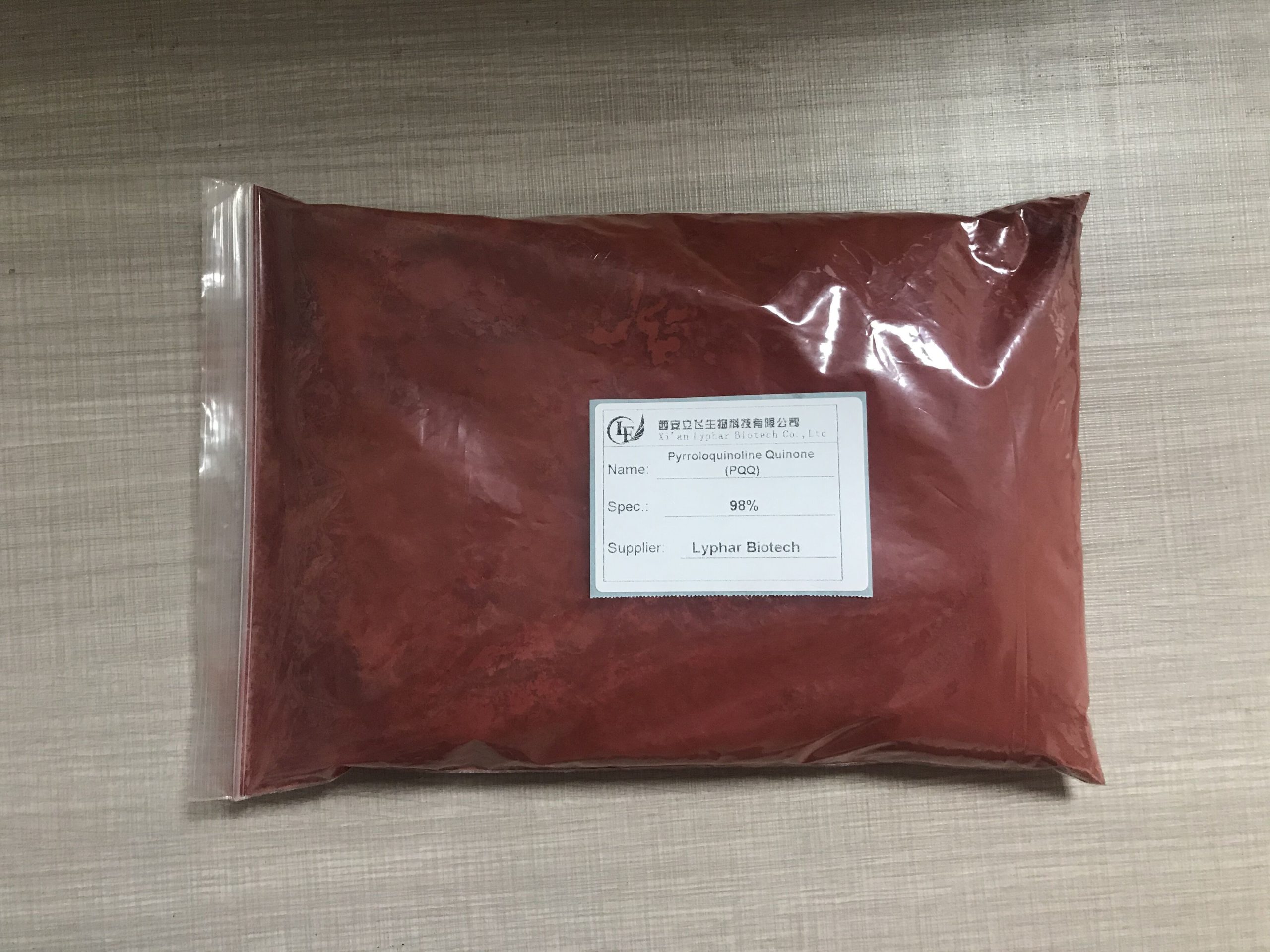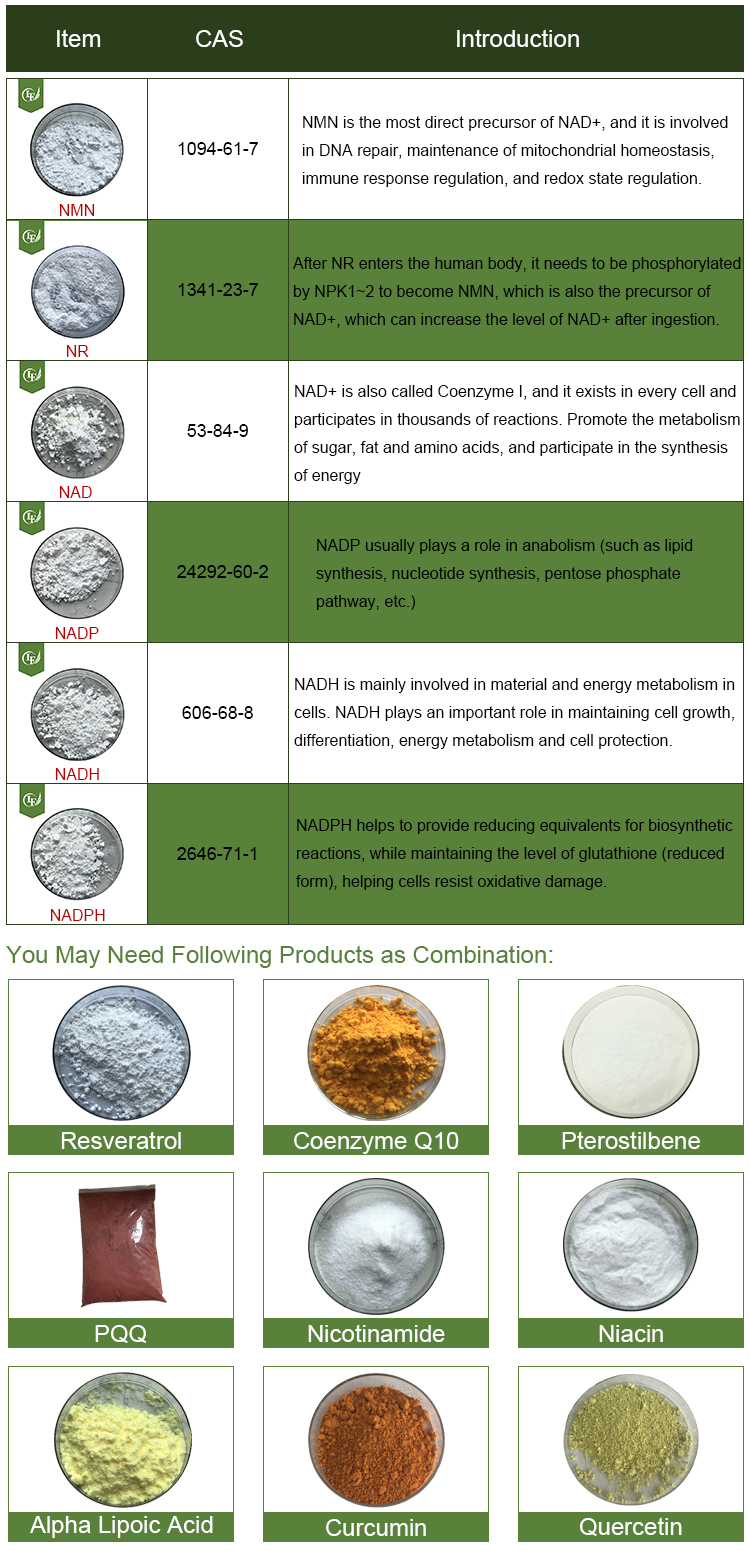Pyrroloquinoline quinone (PQQ) is a redox cofactor and antioxidant that has gained attention for its potential health benefits. It is found in certain foods and is also available as a dietary supplement. PQQ is believed to have neuroprotective, antioxidant, and energy-related properties. However, its use in medical treatment is still a subject of ongoing research, and it is not a standard prescription medication.
If you’re interested in using PQQ for potential health benefits, it’s important to consult with a healthcare professional, such as a doctor or nutritionist, before starting any supplementation. They can provide guidance based on your specific health needs and circumstances.
When using PQQ as a dietary supplement, it is typically available in capsule or tablet form. Follow the recommended dosage instructions provided on the product label or as advised by your healthcare provider.

Here are a few potential uses and considerations related to PQQ:
Antioxidant Support: PQQ is known for its antioxidant properties, which can help combat oxidative stress in the body. It may support overall health and cellular function.
Cognitive Health: Some research suggests that PQQ may have a positive impact on cognitive function and memory. It could be of interest for individuals looking to support brain health.
Energy Production: PQQ may play a role in cellular energy production, potentially benefiting those seeking increased energy levels.
Mitochondrial Function: PQQ has been investigated for its potential to support mitochondrial function, which is essential for energy production in cells.
Heart Health: Some preliminary studies have examined the possible benefits of PQQ in cardiovascular health, but more research is needed to establish concrete recommendations.
Always follow the recommended dosage and consult with a healthcare professional, especially if you are taking medications or have pre-existing medical conditions. Additionally, be aware of potential side effects or interactions, which can vary from person to person.
It’s essential to stay informed about the latest research and consult with a healthcare expert for the most up-to-date and personalized information regarding the use of PQQ for health-related purposes.
Origin and properties of Pyrroloquinoline Quinone
Pyrroloquinoline quinone (PQQ) is a compound with a chemical structure that resembles a coenzyme, and it plays a vital role in biological processes. PQQ was first discovered in 1979 as a cofactor in certain bacterial enzymes, and later, it was found to have important roles in various physiological processes in animals, including humans. Here are some key properties and information about PQQ:
Chemical Structure: PQQ is a redox cofactor with a quinone structure, which consists of a pyrroloquinoline ring with two carbonyl (C=O) and two hydroxyl (OH) functional groups. It can exist in different redox states (PQQ, PQQH2) and participate in electron transfer reactions.
Occurrence: PQQ is found naturally in various sources, including soil, certain plants, fruits, and vegetables. It is also present in trace amounts in various foods such as green tea, kiwifruit, and fermented soybeans.

Biological Role: PQQ plays a crucial role in various biological processes. It acts as a cofactor for several enzymes, including glucose dehydrogenase in some bacteria and certain enzymes involved in energy metabolism and redox reactions in animals.
Antioxidant Properties: PQQ is known for its potent antioxidant properties. It can scavenge free radicals and reduce oxidative stress in the body. This property is believed to contribute to its potential health benefits.
Neuroprotective Effects: Some research suggests that PQQ may have neuroprotective effects, possibly by promoting the growth and survival of neurons. This has led to interest in its potential role in supporting cognitive function.
Mitochondrial Function: PQQ has been shown to support mitochondrial function, which is essential for energy production in cells. It can enhance the biogenesis of new mitochondria, leading to increased energy production and overall cellular function.
Cellular Signaling: PQQ has been implicated in certain cellular signaling pathways that regulate gene expression, cell proliferation, and other important processes.
Human Health: While PQQ is not classified as a vitamin, some studies have suggested that it may have health benefits for humans. These potential benefits include improved cognitive function, enhanced energy production, and overall well-being. However, more research is needed to establish its full range of effects and optimal dosages.
PQQ has gained attention in the field of nutritional supplements and biohacking, with claims of anti-aging and cognitive-enhancing properties. However, it’s essential to note that the research on PQQ is still evolving, and its exact roles and benefits in humans are not yet fully understood. If you are considering PQQ supplementation, it’s advisable to consult with a healthcare professional to ensure it’s appropriate for your specific health needs.
